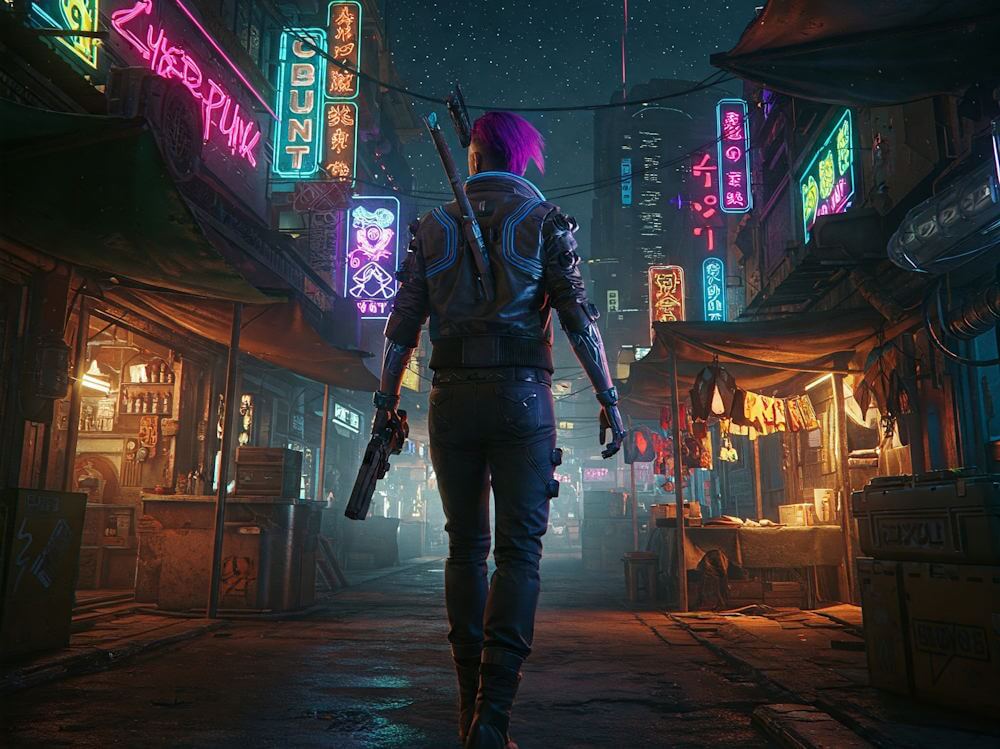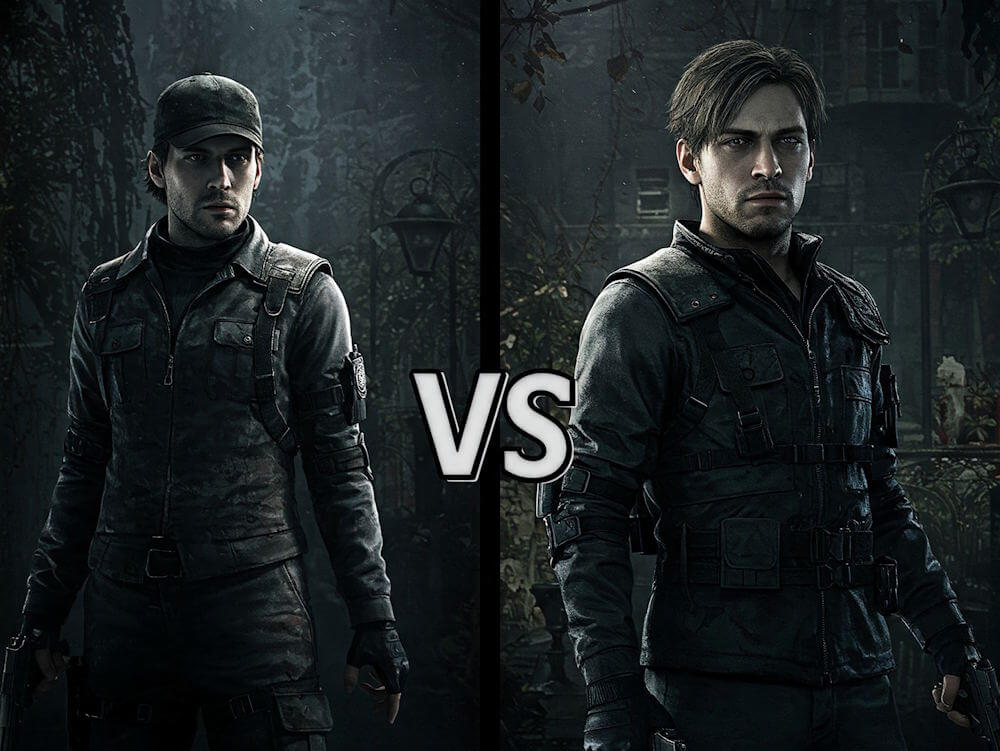Released in December 2020, Cyberpunk 2077 is an action role-playing game developed by CD Projekt Red, the studio renowned for its successful Witcher series. Set in the dystopian Night City, the game promised an expansive open world filled with immersive narratives, deep character customization, and cutting-edge graphics. However, upon launch, players encountered a myriad of technical problems, particularly those on last-generation consoles, leading to significant backlash from both fans and critics alike. The initial reaction to Cyberpunk 2077’s performance fell short of the high expectations set by years of marketing hype and teaser trailers, resulting in a wave of disappointment.
The controversies surrounding the game were further compounded by reports of the studio’s intense work conditions, dubbed “crunch,” which raised ethical questions regarding game development practices. These challenges prompted CD Projekt Red to issue multiple patches and updates aimed at resolving technical issues, highlighting the developer’s commitment to improving the player experience. Nevertheless, the tarnished reputation of Cyberpunk 2077 necessitated a strong recovery strategy to regain player’s trust and interest.
Despite these challenges, many remain optimistic about its potential for redemption. The announcement of the expansion, Phantom Liberty, has generated renewed hope within the community. Players are eager to see how this expansion will address persistent issues while also expanding the game’s content, narratives, and character development. As we explore the journey of Cyberpunk 2077, it becomes essential to examine the factors that contributed to its initial difficulties and analyze whether Phantom Liberty can serve as a hinge in the ongoing narrative of this ambitious project.
Overview of Phantom Liberty Expansion
The Phantom Liberty expansion for Cyberpunk 2077 marks a significant chapter in the ongoing narrative of Night City, building upon the foundation laid by the base game. This expansion introduces a fresh storyline that is set in the gritty and chaotic world of Cyberpunk 2077, further immersing players in the complex interplay of cybernetic enhancements, political intrigue, and survival. Central to this new narrative is the introduction of high-stakes espionage involving the New United States of America, set against the backdrop of the dystopian cityscape. Players will navigate a web of alliances and betrayals as they work to uncover the secrets that could not only save their own character but also jeopardize the fragile stability of Night City.
Phantom Liberty expands the roster of characters, bringing in both new allies and adversaries that are intricately designed to enhance the gameplay experience. Notably, one of the central new characters is the enigmatic and formidable Nusa, whose presence introduces a variety of quests that highlight the moral dilemmas inherent in Cyberpunk’s world. With rich backstories and compelling motivations, these characters contribute depth, making each interaction significant in shaping the story’s progression. In essence, players are prompted to not only engage with the gameplay mechanics but to also reflect on the ethical implications of their choices.
Alongside the narrative advancements, the expansion promises innovative gameplay mechanics that aim to elevate player engagement. This includes new cyberware upgrades, stealth options, and combat tactics that adapt to the various quests introduced. The overall emphasis is on providing players with diverse experiences that enhance the already vibrant atmosphere of Cyberpunk 2077. In doing so, the Phantom Liberty expansion indeed positions itself as a pivotal element in the ongoing evolution of the Cyberpunk narrative, suggesting that it may very well serve as a redemption arc for both the game and its players.
Reception of Phantom Liberty: Critical and Player Feedback
The release of “Phantom Liberty,” the first major expansion for “Cyberpunk 2077,” generated significant interest from both critics and players alike. Upon its launch, various gaming reviews began to surface, highlighting the expansion’s focus on narrative depth and character development, elements that the original game had been critiqued for lacking. Critics have lauded the efforts made by CD Projekt Red to craft a more engaging storyline, stating that it successfully elevates the overall experience of “Cyberpunk 2077.” Many reviews noted the improved mission design and the new characters introduced, particularly emphasizing their impact on the game’s narrative arc.
Players also expressed a renewed sense of optimism regarding “Phantom Liberty.” Their testimonials reflect a more favorable perception of “Cyberpunk 2077” as a whole, with numerous players sharing their experiences of enhanced gameplay and an immersive storyline. The addition of new gameplay mechanics, as well as optimizations that addressed many of the issues present at the launch of the base game, were also highlighted in player feedback. Comparisons to the original game suggest that “Phantom Liberty” has managed to mend some of the damages done by earlier shortcomings, potentially turning a critical corner for the title’s reputation.
Comparative Analysis: Before and After Phantom Liberty
Cyberpunk 2077, initially released in December 2020, faced significant backlash due to various performance issues, bugs, and a narrative that did not resonate with many players. The game has undergone substantial scrutiny, leading to concerns over its overall value in the rapidly evolving landscape of role-playing games. However, with the advent of the Phantom Liberty expansion, a notable shift has occurred. The enhancements introduced in this expansion showcase a marked improvement in multiple aspects.
In terms of graphics, Cyberpunk 2077 saw substantial refinements post-expansion. The graphical fidelity has improved, with better textures and lighting effects that enhance the immersive experience of Night City. The game’s environments now feel more alive and striking, thanks to advanced rendering techniques that have been implemented to alleviate the previous shortcomings. Players will undoubtedly appreciate the updated visual presentation that aligns better with the high expectations of contemporary gaming.
Moreover, gameplay dynamics have also seen considerable evolution. Phantom Liberty introduces new mechanics and systems that breathe fresh air into the game’s core experience. These changes aim to address earlier leaks of monotony reported by players. Enhanced combat mechanics along with more tactical options encourage players to explore different styles of play, making for a richer and more engaging gameplay experience. The addition of impactful choices also enriches the interaction players have with the narrative, allowing for more varied outcomes.
Storytelling is another key area where Phantom Liberty excels. The expansion deepens the narrative by weaving in new plots and character arcs that resonate well with the overarching themes of the Cyberpunk universe. This not only addresses previous criticisms surrounding narrative depth but also invites players to invest emotionally in the stories presented. Overall, these updates collectively serve to enhance Cyberpunk 2077, making it a more polished and enjoyable experience compared to its initial launch.
Key Themes and Story Arc Developments
The expansion of Cyberpunk 2077, titled Phantom Liberty, intricately weaves key themes into its narrative fabric, further enriching the overarching storyline. One of the most prominent themes is the quest for redemption, which resonates deeply with the lives of both established and new characters. The narrative showcases the internal struggles of characters as they grapple with their past choices, seeking to make amends amid a chaotic world. This theme is particularly manifested through the protagonist’s journey, where the pursuit of redemption becomes a driving force behind critical decisions, ultimately shaping the plot’s progression.
The character development offered in Phantom Liberty provides a nuanced exploration of human emotions and moral ambiguity. As players navigate the complex relationship dynamics among characters, they witness profound transformations influenced by their interactions. Characters like Johnny Silverhand and various new figures introduced in the expansion serve as catalysts for the protagonist’s growth. Through their stories, players can uncover how personal redemption can lead to broader societal implications, echoing the central tenets of personal freedom prevalent in the Cyberpunk universe.
Plot progression in Phantom Liberty is marked by intricate storytelling and unexpected twists that challenge the characters’ motives. The expansion enhances the original narrative by proposing dilemmas that highlight the conflict between survival and integrity. Players are often faced with choices that test their moral compass, further entrenching the themes of trust, betrayal, and sacrifice. As the story unfolds, the relationship between the characters and their evolving motivations maintains a tight correlation with the game’s exploration of redemption.
Overall, Phantom Liberty significantly enhances the thematic depth and character arcs established in Cyberpunk 2077, inviting players to reflect on their choices and the quest for redemption amidst a world rife with corruption and despair.
Gameplay Mechanics: Innovations and Improvements
Cyberpunk 2077: Phantom Liberty introduces several noteworthy innovations and improvements to the gameplay mechanics, effectively enhancing the overall player experience. One of the most significant upgrades is the refined skill tree, allowing for greater customization of abilities. Players can now specialize in new paths, encouraging diverse gameplay strategies—ranging from stealth tactics to aggressive combat styles. This flexibility caters to various play preferences and fosters a deeper engagement with the game.
Additionally, Phantom Liberty expands on the existing combat system. The introduction of new combat options, such as advanced weaponry and tactical abilities, adds layers of depth to encounters. For instance, players can now utilize nanotechnology to modify weapons on-the-fly, enabling dynamic adjustments that can turn the tide of battle. These enhancements not only make combat more strategic but also demand players to adapt their approaches based on the evolving challenges of Night City.
The environment itself has also undergone significant changes. New traversal mechanics, such as improved parkour movements and verticality, allow players to navigate the urban landscape more fluidly. This addition encourages exploration, rewarding players with hidden secrets and new story elements throughout the expansive world. The augmented reality system introduces immersive overlays that provide real-time intel, facilitating better decision-making in high-stakes situations.
Moreover, the enhanced AI presents a compelling evolution in how NPCs interact with players. Enemies exhibit more intelligent behavior patterns, making combat scenarios feel more organic and unpredictable. Conversely, ally behaviors are also improved, enriching the experience of collaboration during missions. Overall, these advancements in gameplay mechanics set a new standard for engagement and immersion in Cyberpunk 2077, making Phantom Liberty a pivotal chapter in the game’s narrative.
Impact on the Cyberpunk Franchise
The release of “Phantom Liberty” has generated significant discussions about its effects on the Cyberpunk franchise as a whole. As an expansion to the original “Cyberpunk 2077” game, it is not merely an addition; rather, it serves as a crucial pivot point that could redefine how stakeholders perceive the franchise in the gaming community. The initial launch of “Cyberpunk 2077” was marked by numerous controversies, significantly damaging its brand reputation. However, the positive feedback and improvements seen in “Phantom Liberty” may signal a turnaround for the franchise.
One notable impact of “Phantom Liberty” is its potential influence on upcoming projects within the Cyberpunk realm. CD Projekt Red, the development studio behind the franchise, appears to be aligning its future endeavors with the lessons learned from both the challenges and successes of “Phantom Liberty.” This includes a renewed focus on storytelling, gameplay mechanics, and overall player experience. By establishing a more solidified narrative in this expansion, the studio is likely setting the stage for future titles that resonate better with audiences.
Moreover, the success of “Phantom Liberty” provides an opportunity for CD Projekt Red to rebuild trust with its community. Player engagement metrics suggest that fans are returning to the franchise, driven by improved gameplay experiences and enriched narratives. This rekindled interest not only rejuvenates the brand but also boosts the potential for collaborations, merchandise, and even adaptations in other media. Overall, the expansion has the capacity to serve as a cornerstone for revitalizing the Cyberpunk image, steering it towards a future marked by innovation and creative growth.
Community Response and Player Engagement
Since the release of Cyberpunk 2077: Phantom Liberty, the community response has been robust and varied, reflecting the integral role that player engagement plays in the game’s overall narrative. Forums such as Reddit and game-related discussion boards have been filled with discourse, ranging from reviews and critiques to fan theories and artwork inspired by the expansion. The discussions often showcase a spectrum of opinions, with many returning players expressing renewed enthusiasm for the Cyberpunk universe.
Social media platforms have also become avenues for players to share their experiences of Phantom Liberty. On Twitter and Instagram, hashtags related to the expansion have trended, creating a buzz that strengthens the community around the game. Players are sharing not only their gameplay experiences but also their interpretations of new characters and plot developments, further deepening the connection to the narrative. This engagement highlights how the expansion has successfully rekindled interest in the Cyberpunk franchise, encouraging conversations that were previously subdued following the initial launch.
Additionally, fan creations have surged in visibility, with numerous artists and content creators producing homage works that celebrate the new elements introduced in Phantom Liberty. This influx of creative content illustrates the expansion’s impact on player engagement, showcasing the potential of community-driven efforts to revitalize a game’s ecosystem. Players are not just consumers of the content but also participate actively in shaping the conversation, indicating a healthy, evolving relationship with the Cyberpunk narrative.
In conclusion, the community response to Phantom Liberty underscores the importance of player engagement in enhancing the Cyberpunk experience. This renewed interest not only revitalizes the game but also fosters a sense of belonging among players, contributing to a dynamic and thriving community. As discussions continue to evolve, it becomes evident that player engagement will play a crucial role in the future of the Cyberpunk 2077 franchise.
Conclusion: Phantom Liberty as a Redemption Arc?
As we examine the overarching narrative and enhancements of Cyberpunk 2077 through the lens of its expansion, Phantom Liberty, it is essential to assess whether it fulfills the criteria of a redemption arc for the game. Initially criticized for its technical flaws and inconsistent storytelling, the original release left many fans disappointed. However, with Phantom Liberty, CD Projekt Red has endeavored to address these grievances while offering a renewed experience within the dystopian world of Night City.
One of the significant improvements seen in the expansion is the refinement of gameplay mechanics, which has been met with favorable reception. Players have noted that the gameplay experience feels more polished and immersive, tackling the issues of bugs and performance that plagued the original. This enhancement contributes to a more engaging engagement in the narrative, making the world feel alive and responsive. Additionally, the introduction of new characters, especially the prominent figure of Solomon Reed, adds depth to the storytelling and offers players a reason to invest emotionally in the plot.
Moreover, the expansion revisits key themes prevalent in Cyberpunk 2077, such as corporate greed, identity, and the struggle for autonomy within a high-tech society. By exploring these concepts through fresh narratives and character arcs, Phantom Liberty elevates the original context and provides players with a sense of evolution. While the original release may have faltered, the expansion aims to redeem the franchise by creating a more connected and coherent narrative experience.
In conclusion, while Cyberpunk 2077: Phantom Liberty cannot entirely erase the shortcomings of its predecessor, it certainly acts as a significant step towards redemption. By meeting player expectations and enhancing the narrative, it invites the conversation: can we consider this expansion a true redemption arc for the Cyberpunk 2077 franchise? The answer may very well lie in the experiences of players who return to Night City with renewed hope and intrigue.



